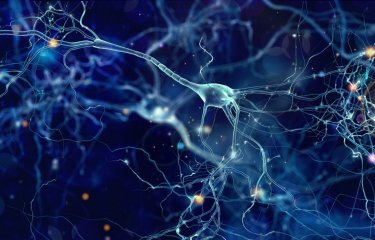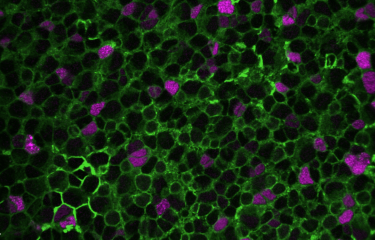Although we have known for several years that the adult brain can produce new neurons, many questions about the properties conferred by these adult-born neurons were left unanswered. What advantages could they offer that could not be offered by the neurons generated shortly after birth? Scientists from the Institut Pasteur and the CNRS have demonstrated that the new neurons produced in adults react preferentially to reward-related sensory stimuli and help speed up the association between sensory information and reward. Adult-born neurons therefore play an important role in both the identification of a sensory stimulus and the positive value associated with that sensory experience. The neurons generated shortly after birth are unable to perform this function. These findings are published in the journal PNAS on February 19, 2018.
Although most neurons are generated during embryogenesis, some brain regions in mammals are capable of constantly regenerating their neurons in adulthood. The existence of these adult-born neurons has been proven, but many questions about their function and the way in which they integrate into their target areas remain unanswered.
Research carried out by the Perception and Memory team (Institut Pasteur/CNRS), directed by Pierre-Marie Lledo, a CNRS Director of Research, has recently revealed the specific role of these neurons produced in the adult brain. This study demonstrates that assigning positive values to sensory experiences is closely based on the activity of adult-born neurons, and not the neurons formed shortly after birth. It is these new neurons that may enable individuals to anticipate the delivery of a reward.
The scientists focused on the production of new neurons in adult mice, in particular those neurons that integrate into the olfactory bulb, the brain region responsible for analyzing odors. These new neurons are thought to play a major role in providing flexibility for learning and memorizing olfactory sensory experiences.
The scientists from the Institut Pasteur and the CNRS observed that the new neurons were able to react differently to an odor depending on the consequences associated with that sensory experience, such as whether or not there would be a reward. They also demonstrated that olfactory learning, in which the mice had to associate an odor with positive reinforcement, became easier once the new neurons had been activated. Finally, simply activating these adult-born neurons could be assimilated with a reward-predicting odor.
In short, this research shows that adult-born neurons are involved in the value associated with sensory stimuli rather than just the identification of the nature of a given sensory stimulus. It demonstrates that reward-motivated learning depends largely on adult neurogenesis.
Transferred to humans, these findings could improve our understanding of the role played by new neurons in the adult hippocampus in associative learning processes.
Source
Adult-born neurons boost odor–reward association, Proceedings of National Academy of Science, 19 février 2018
Anne Grelat (1,2), Laura Benoit (1,2), Sébastien Wagner (1,2), Carine Moigneu (1,2), Pierre-Marie Lledo (1,2) and Mariana Alonso (1,2)
(1) Perception and Memory, Institut Pasteur, 25 rue du Docteur Roux, F-75724 Paris, France
(2) CNRS UMR3571, Institut Pasteur, 25 rue du Docteur Roux, F-75724 Paris, France





